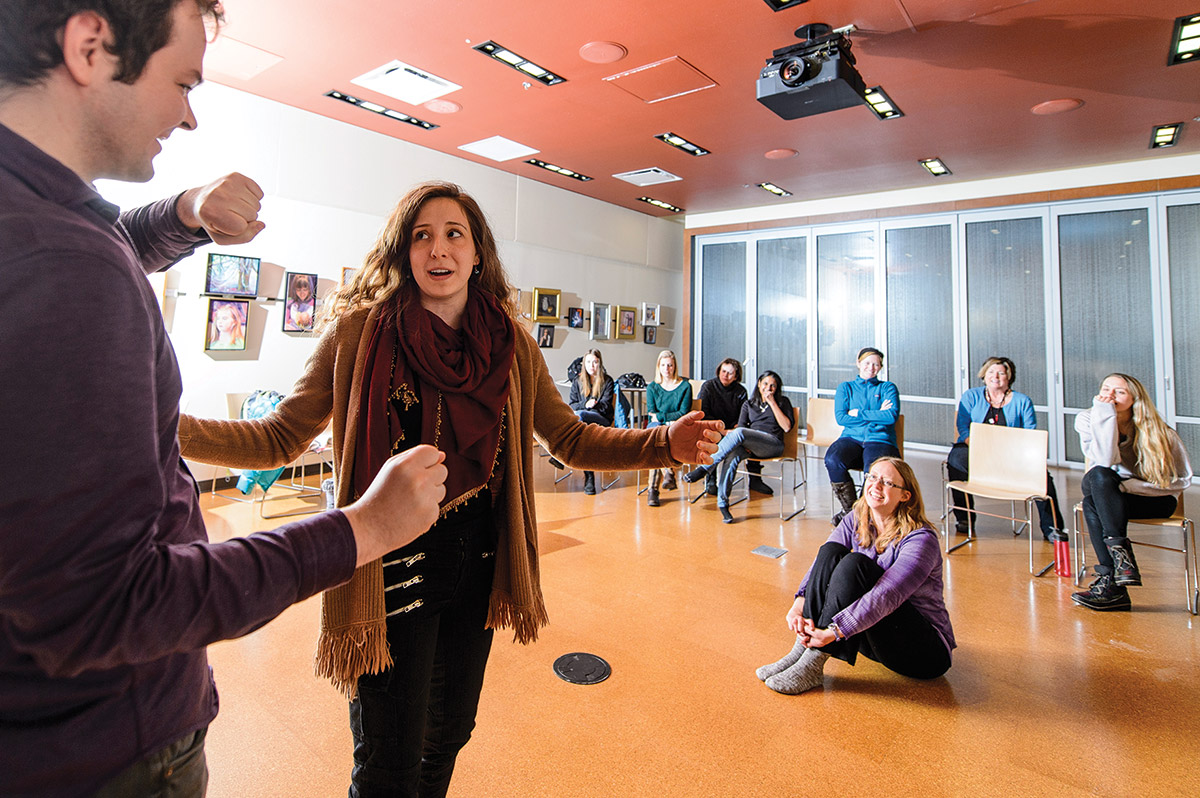“Yes, and …”

Medical professionals and UW students in health care disciplines learn improv techniques so they can tap creativity and spontaneity in stressful moments on the job. Bryce Richter
Late on a Monday afternoon, a student stands in the center of a circle inside the School of Nursing’s Signe Skott Cooper Hall. She is pretending to ride a bike, but when a second student asks what she is doing, she says she is giving birth. The class laughs, and the second student trades places with the first and plops down on the floor to (discreetly) pantomime childbirth. The first student joins the circle. When a third asks the student on the floor what she is doing, she says she is grabbing a snake. The third student hops up and switches places with the second student. And on it goes.
This is a game, but it’s also a way to practice thinking and doing two different things at once. It is also the day’s warm-up exercise for Improvisational Theater for Health Professionals, a six-week, one-credit course offered by the UW School of Medicine and Public Health. The course attracts students and professionals from a variety of health disciplines who are learning to collaborate better to improve care and patient satisfaction.
“A lot of people know improv as a form of sketch comedy, and it is that,” says assistant professor Amy Zelenski MS’10, PhD’15, who developed and teaches the course. “But improv really pulls together many skills that are necessary for communication in the health care environment.”
Zelenski says improv techniques are powerful for teaching students and practitioners to listen closely, imagine others’ perspectives, respond authentically to others’ emotions, and tap creativity and spontaneity in stressful moments. All of these skills, she says, can lead to better patient experiences.
Sierra Mayorga, a senior nursing student, heard about the class from a professor who took it last year. Mayorga expected it to be fun, but she was a bit surprised by how relevant and practical it was, too. “I realized it would help us a lot, because we do a lot of improvisation in our work with patients. We never know what they’re going to be like or what they’ll be asking of us,” she says. “It’s given me a more holistic approach to patient care and how I communicate with people.”
Published in the Summer 2017 issue



Comments
No comments posted yet.